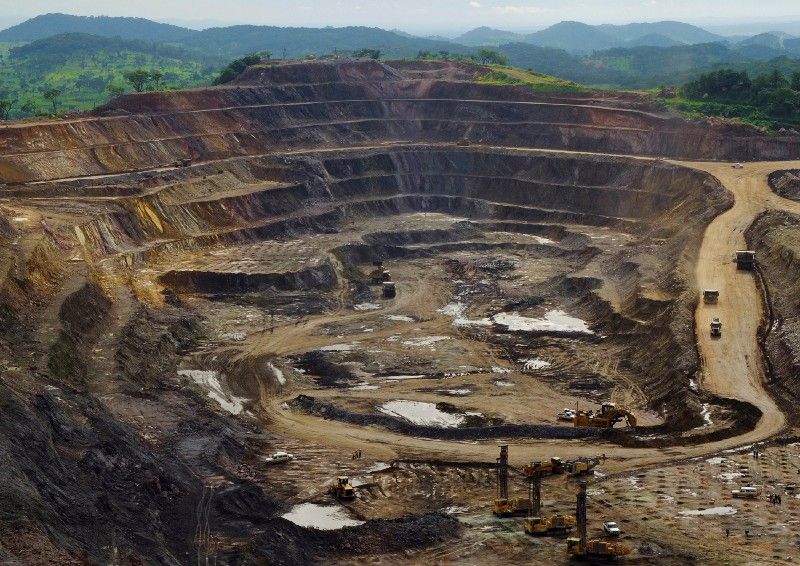March 09, 2018
If you’re reading Signal today on your phone, you may be financing child labor in one of the poorest countries in Africa without knowing it. A report this week from CBS News revealed that thousands of children are being used to mine cobalt in the Democratic Republic of Congo.
Our Kevin Allison explains that cobalt is an essential component in the lithium-ion batteries that power many of our gadgets, and child labor reportedly persists in the DRC despite a multi-year push by big tech companies, under pressure from activist groups, to clean up their supply chains.
The DRC, site of a war (1997–2003) that killed more than 5 million people, is home to two-thirds of the world’s cobalt. Mining it is toxic work, and the country’s weak central government can’t police working conditions in the informal mines that dot the country’s mineral belt, leaving industry effectively in charge.
Even if it were possible to track every ounce of cobalt that ends up in your Chinese-made iPhone battery and hold mining companies to account, cutting off unscrupulous suppliers could leave both kids and adults in the DRC economically worse off. In many villages, mining is the only way to put food on the table.
President Joseph Kabila, who has defiantly remained in power 15 months beyond the end of his elected term and whose government exerts little control over large swaths of DRC territory, says he’ll sign a new mining code into law that the country’s mining companies aggressively oppose. Will mining companies police themselves? We’re skeptical. Elections are due in December. We’re skeptical about that too.
The political point: Since 9/11, US policymakers have warned of lawless countries where terrorist groups can live, train, and organize far from watchful eyes. But in a political vacuum like the DRC — a country with dazzling natural wealth and terrible violence over many centuries as outsiders and insiders compete to loot the country’s mineral and metal resources — there are other forms of evil that deserve our attention.
And as our Alex Kliment points out, now you know about it because you read it on your phone.
More For You
World Central Kitchen staff hand out free soup in a neighbourhood that experiences electricity and heating outages following recent Russian attacks on Ukraine’s civilian infrastructure during subzero temperatures in Kyiv, Ukraine February 3, 2026.
REUTERS/Thomas Peter
1,170: The number of high-rise buildings in Kyiv that were left without heating following a barrage of Russian attacks last night on Ukraine’s capital and its energy facilities, per Kyiv Mayor Vitali Klitschko.
Most Popular
What We’re Watching: US critical minerals summit, Rafah crossing reopens, Border violence in Pakistan
Feb 02, 2026
U.S. President Donald Trump and Japanese Prime Minister Sanae Takaichi hold up signed documents regarding securing the supply of critical minerals and rare earths, at a bilateral meeting at Akasaka Palace in Tokyo, Japan, October 28, 2025.
REUTERS/Evelyn Hockstein
Representatives from the European Union, United Kingdom, Japan, and others will meet in Washington this week to discuss a strategic alliance on critical minerals.
Hard numbers: Large protests in Czechia, UAE-linked firm has large stake in the president’s company, & More
Feb 02, 2026
People take part in a rally in support of Czech President Petr Pavel, organised by Million Moments for Democracy group in reaction to dispute between President Pavel and Czech Foreign Minister and Motorists chair Petr Macinka, in Prague, Czech Republic, February 1, 2026.
REUTERS/Eva Korinkova
80,000: The number of people estimated to be in the streets of Czechia on Sunday to show their support for President Petr Pavel after he blocked the nomination of an environmental minister who performed the Nazi salute and posted Nazi memorabilia.
US President Donald Trump and musician Nicki Minaj hold hands onstage at the US Treasury Department's Trump Accounts Summit, in Washington, D.C., USA, on January 28, 2026.
REUTERS/Kevin Lamarque
The US has started handing $1,000 to the bank accounts of newborn babies. But can policies like this one help boost sagging birthrates in advanced democracies?
© 2025 GZERO Media. All Rights Reserved | A Eurasia Group media company.
